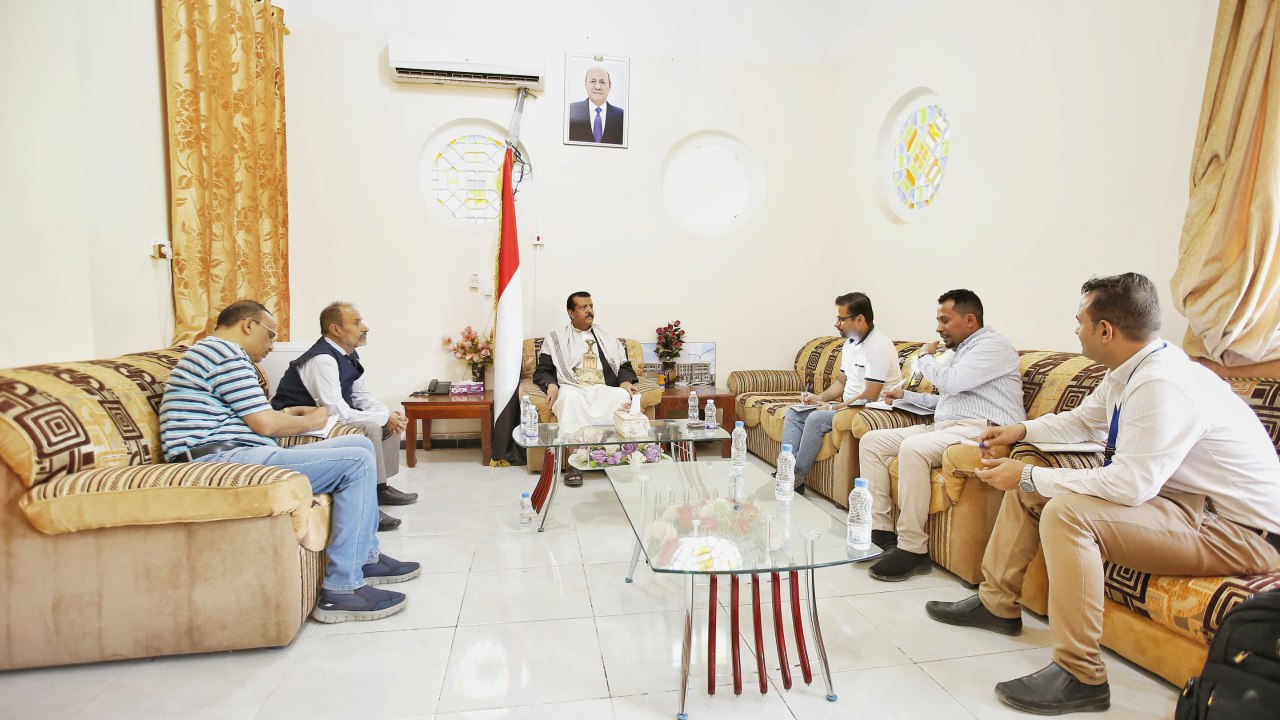


Barran Press
Thursday, June 6, Dr. Abdulrabbu Muftah, the deputy governor of Marib, held separate meetings with officials from Oxfam, the International Solidarity Organization, and the World Health Organization to discuss the humanitarian situation, upcoming projects, and interventions in the governorate.
During his meeting with the newly appointed director of Oxfam's office in Marib, Josie Antipinio, Muftah listened to an explanation of the organization's orientations and plans for interventions in the fields of food security, water, protection, shelter, environmental sanitation, and its preparedness to support and implement the sanitation project in the governorate due to its utmost health and developmental importance.
Additionally, Deputy Governor Muftah discussed with Stephen Besten, the Qatari director of the International Solidarity Organization's mission in Yemen, the level of the organization's interventions and its role in meeting the increasing basic humanitarian needs of both internally displaced persons and the host community. This discussion was based on the organization's assessment of the humanitarian situation in the recently visited IDP camps by the organization's official.
Furthermore, during his meeting with the World Health Organization's representative in Yemen and the head of the Health Cluster, Fahad Khan, Deputy Governor Muftah discussed the health sector in Marib, its urgent needs, and the main challenges it faces in light of the spread of diseases and pandemics. The meeting also addressed the organization's role in enhancing the health sector's capacities, rehabilitating its workforce, and providing medications for major diseases.
Officials from the three organizations commended the local authorities' cooperation with their organizations and the facilitation they provide during the implementation of projects and humanitarian activities in the governorate. They emphasized that their organizations prioritize Marib as it hosts the largest number of internally displaced persons in Yemen, and the influx of displacement to the governorate continues. Their plans focus on transitioning from emergency interventions to sustainable and developmental projects.
They pointed out that their visit aims to strengthen the humanitarian partnership with the local authorities, enhance their capacities, assess the humanitarian situation, and identify the needs and priorities for projects and interventions that their organizations can contribute to alleviate the suffering of the displaced persons in the governorate.